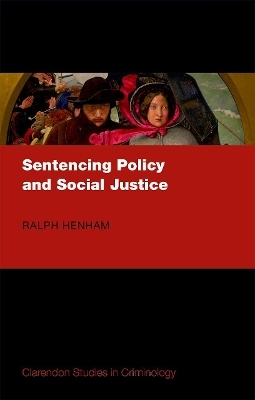
Sentencing Policy and Social Justice
Oxford University Press (Verlag)
978-0-19-871889-5 (ISBN)
The need to reflect public opinion in sentencing has received significant attention more recently, with renewed interest in jury sentencing, 'stakeholder sentencing', and the involvement of community views when regulating policy. The author, however, advocates a different approach, combining a new theoretical focus with practical suggestions for reform, and arguing that the contribution sentencing can make to social justice necessitates a fundamental change in the way shared values about the advantages of punishment are reflected in penal ideology and sentencing policy.
Using examples from international, comparative and domestic contexts to advance the moral and ethical case for challenging the existing theories of sentencing, the book develops the author's previous theoretical ideas and outlines how these changes could be given practical shape within the context of sentencing in England and Wales. It assesses the consequences for penal governance due to increased state regulation of discretionary sentencing power and examines the prospects for achieving the kind of moral transformation regarded as necessary to reverse such a move. To illustrate these issues each chapter focuses on a particularly problematic area for contemporary sentencing policy; namely, the sentencing of women; the sentencing of irregular migrants; sentencing for offences of serious public disorder; and sentencing for financial crime.
Ralph Henham, Emeritus Professor of Criminal Justice at Nottingham Law School, Nottingham Trent University.
Introduction
1. Sentencing policy and changing notions of social justice
Introduction
Punishment and the relationship between citizen and state
Justice and social context
The social reality of sentencing policy and social justice
The relationship between rights, norms and ethics
The state's duty to promote social justice through sentencing
The politics of sentencing and the relevance of social values
Social justice and the sentencing of irregular migrants
2. Sentencing policy as a force for social cohesion
Introduction
Conceptualising sentencing as a normative function
Problems of relating social values to sentencing
Sentencing policy in a fragmented society
Lessons from the English riots of 2011
3. The relevance of globalisation and notions of transition
Introduction
The impact of globalisation on sentencing policy
Problems of comparison and policy transfer in sentencing
Recognising the relativity of value
Sentencing and the notion of transition
Social values and the sentencing of financial crime
4. Engaging sensibilities and the common good
Introduction
Sentencing as therapy
Public perceptions of sentencing
Sentencing policy and the common good
Conclusions and implications
5. Bridging the gap between political and penal legitimacy
Introduction
The legitimacy of sentencing and the political economy
Achieving greater recognition for social justice in sentencing
Communitarian values and the politics of sentencing
Social justice and the sentencing of women
6. Establishing new foundations and structures for governance
Introduction
Re-casting the moral values that inform penal ideology
The implications for sentencing research
The impact on criminal justice governance
Problems of moving from theory to practice
The role of judicial discretion
Prioritising substantive justice
Countering the secularisation of justice delivery
7. Some practical implications for policy and practice
Introduction
Strategies for achieving practical reform
Reflecting social value
A publicly justifiable framework of penal objectives
Developing a workable test of social value
Developing an integrated sentencing framework
8. Conclusion
The case for change
The implications for sentencing policy
Enhancing the moral credibility of sentencing
Promoting social justice as a realistic objective
Strategies for developing judicial discretionary power
Restoring public confidence and trust in discretionary justice
Concluding comments
| Erscheinungsdatum | 16.04.2018 |
|---|---|
| Reihe/Serie | Clarendon Studies in Criminology |
| Verlagsort | Oxford |
| Sprache | englisch |
| Maße | 148 x 223 mm |
| Gewicht | 512 g |
| Themenwelt | Recht / Steuern ► EU / Internationales Recht |
| Recht / Steuern ► Strafrecht ► Kriminologie | |
| Recht / Steuern ► Strafrecht ► Strafverfahrensrecht | |
| ISBN-10 | 0-19-871889-6 / 0198718896 |
| ISBN-13 | 978-0-19-871889-5 / 9780198718895 |
| Zustand | Neuware |
| Haben Sie eine Frage zum Produkt? |
aus dem Bereich


